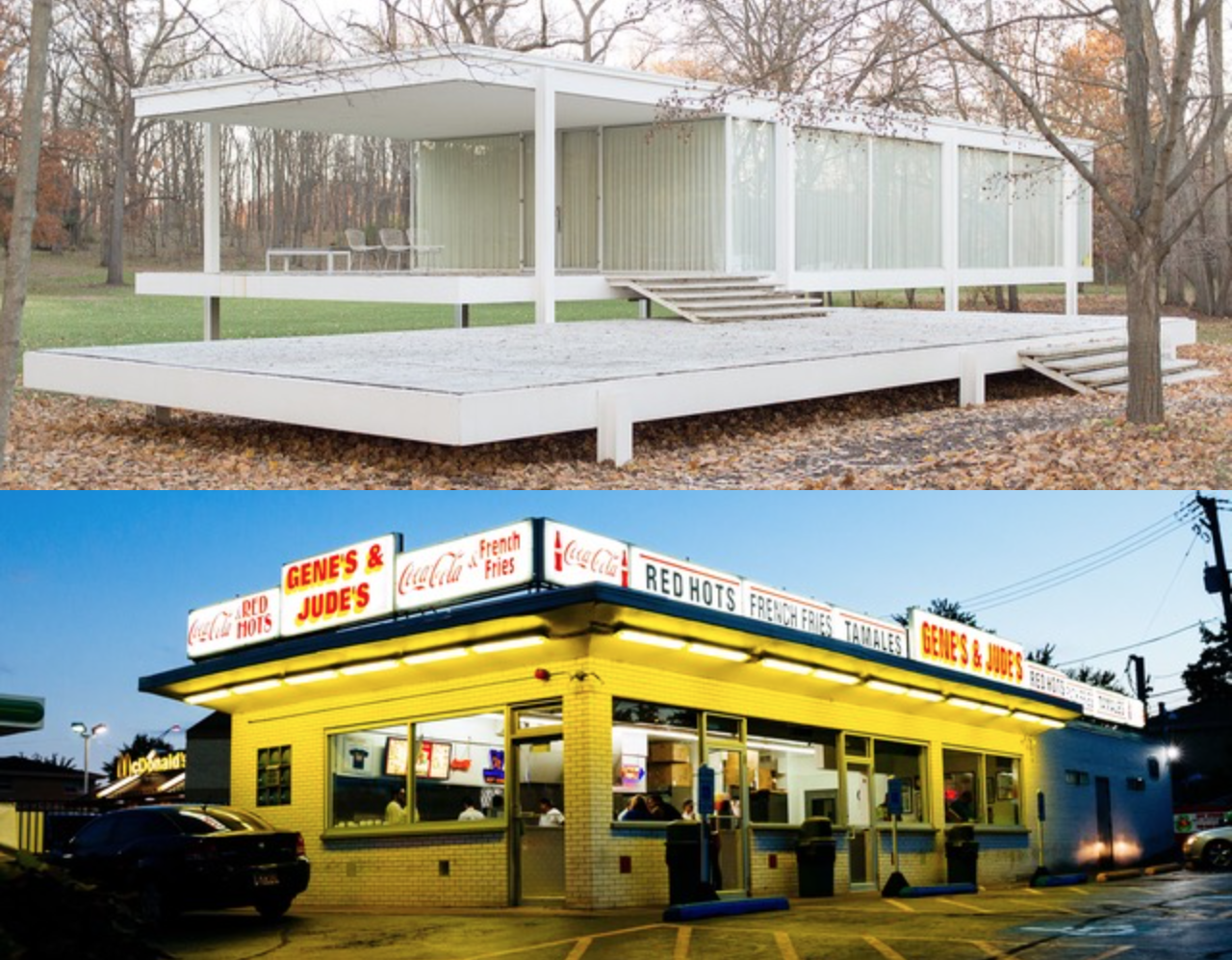WXRT DJ Lin Brehmer does a regular segment called Lin's Bin where he answers letters from readers on the air in a poetic way, with an appropriate musical soundtrack. These spots are always entertaining, but I found a recent episode to be especially thought-provoking. The DJ was asked, "Where exactly is Chicagoland – what are its boundaries?" – listen to his full response here.
Brehmer didn't spend much time trying to address that particular question, i.e. what is the extent of the Chicago region or metropolitan area. However, technically correct answers do exist, sort of.
The Chicago Metropolitan Area can refer to the Census-defined "Chicago-Naperville-Elgin, IL-IN-WI Metropolitan Statistical Area," which goes as far north as Kenosha, Wisconsin, and as far east as La Porte, Indiana. As of the 2015 Census estimate, the population of that district was 9,532,569, making it the third-largest MSA in the country.
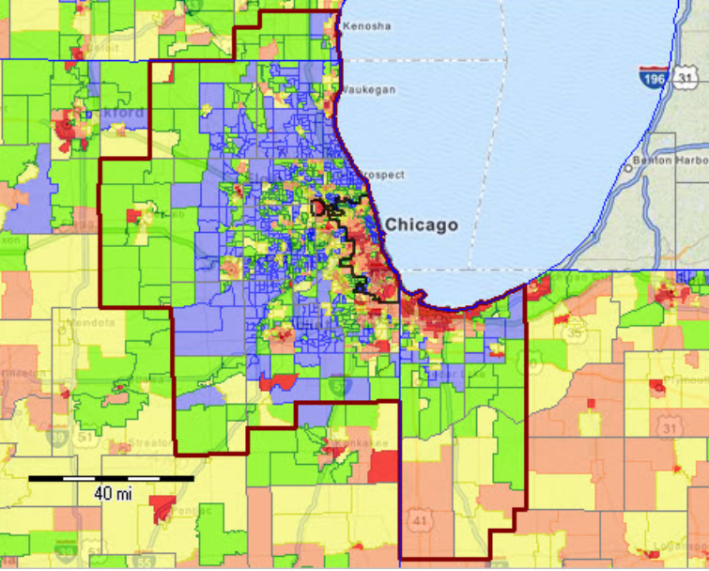
But there are a few other official government definitions of the region that are a little different. And I'd also be willing to go with an informal definition that includes anywhere within the general zone that can be reached from downtown Chicago by commuter rail. But I'd draw the line at South Bend, Indiana, even though you can get there on the South Shore Line, because it's about 90 miles from the Loop. Calling South Bend part of Chicagoland would be getting a little ridiculous.
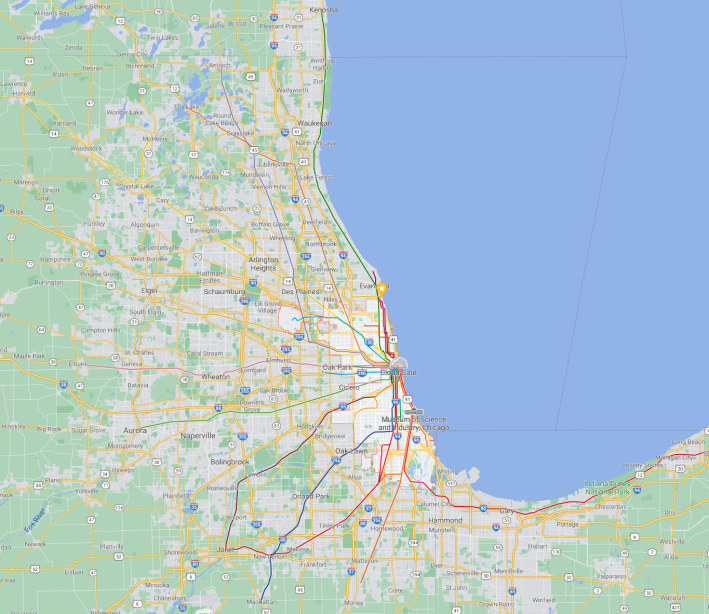
Brehmer tried to respond to the listener's question by inaccurately conflating "Chicago" with the Chicago region: "As a media entity, Chicago is really an expanse wrapped around an inland sea, from Wisconsin to Indiana and south to the prairie."
He seemed to take a dim view of the correct term for the metro area, Chicagoland. "We hear it on TV by sponsors who want to be inclusive: 'Our car dealership serves all of Chicagoland.'" However, I think it's a handy word.
Much of Brehmer's monologue was spent arguing it's snobbish to insist the suburbs are not actually part of Chicago. "But there will always be purists who want Chicago to be identified separately from the various suburbs and nearby towns," he says.
Brehmer described a hypothetical situation of a Chicagoan sitting in a cafe in La Roque-Gageac, a small village in southwestern France, and seeing a couple, including a guy in a Bears t-shirt sitting nearby.
You say, "Are you from Chicago?" And he says cheerfully, "We sure are." And you think, small world.
And you say brightly, "We are too, what part do you live in?" And they say, "Schaumburg." Internally you may be screaming, "Schaumburg? That's not Chicago!"
But this is why we need to internalize. You're in France. You're drinking good wine. No time for geography on a beautiful day overlooking the Dordogne River. So they're not from Chicago; they're from Chicagoland. Better just move on and raise a glass to Justin Fields.
Fair enough, if you were to make a point of reminding the Bears fan he's not actually from Chicago, you would be the jerk in that situation.
Still, it doesn't make sense for suburbanites to go around implying they're from Chicago proper, or suggesting that there's no real difference between the suburbs and the city.
Now, the urbanite's stereotype of the 'burbs as homogenous cultural wastelands is an unfair one. Viewed as a whole, Chicago's suburbs are ethnically, economically, and geographically diverse.
But the type of Chicagoland suburbanite you're likely to encounter in a French cafe probably lives in the 'burbs by choice. Maybe they were motivated to move out of Chicago by the better-funded public schools in middle-class and affluent municipalities, a product of our inequitable, property tax-based school funding formula. Or perhaps it was the appeal of living in a good-sized house with a big yard, in an area where driving seems more convenient because all the retail has tons of parking, factors that contribute to unsustainable sprawl.
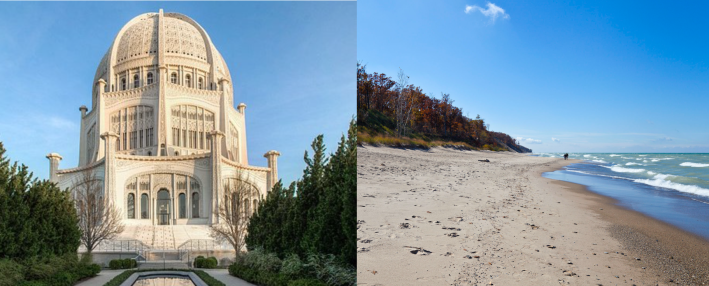
So when a person takes advantage of these aspects of the suburbs, while simultaneously trying to associate themself with the density, vibrancy, and grit of Chicago, it's sort of a case of trying to have their cake and eat it too.
Brehmer acknowledged this is a common phenomena. "You'll always meet people who claim Chicago is their home when they're hiding out in Naperville. [However,] no one will ever say, I'm from Chicagoland."
But maybe they should.
First of all, there are lots of alternatives to saying "I'm from Chicago" if you're really not. Just tell people you live "close to Chicago," "outside of Chicago," "in the Chicago suburbs," "in a town called [name of your town], near Chicago," or, yes, "in Chicagoland."
I grew up in the suburbs and, even then as a kid, my parents taught me to say that we were from the western suburbs of Chicago. It's not hard.
— Grant (@MelissaGrant773) June 21, 2021
I'd also like to see us foster a spirit of regional, not just civic, pride that would unite city dwellers and suburbanites. That's why I'm trying to popularize, probably futilely, the term "Chicagolander" to refer to anyone who lives in the metro area.
After all, there are lots of awesome things in Chicagoland that aren't actually in Chicago. Here's just a few of them (more in this thread.)
While drawing a line between the city and the suburbs is just being realistic, Brehmer argued it’s elitist. "Life gets shorter every year. My hope is we strive to be more inclusive. If the cool kids won't let you come to their lunch table because you're not from Chicago, sit at my table. I'm serving Johnnie's Beef, hot peppers. The most Chicago joint in all of Chicagoland."
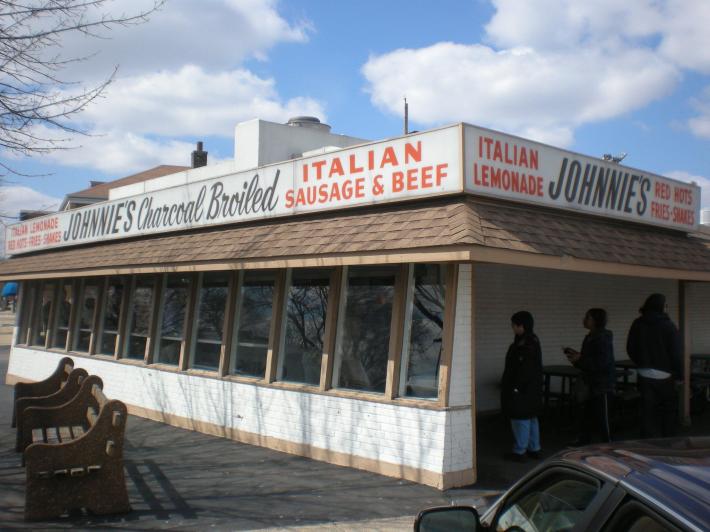
That was a clever way to end the segment because Johnnie's, widely considered the best place in the region for an Italian beef sandwich, is just over the border from the city in suburban Elmwood Park. But still, Johnnie’s is not a “Chicago joint," it’s a Chicagoland joint.
Again there's no point trying to police suburbanites who act like they're from Chicago. But let's not pretend that the suburbs are the city. Rather, let's celebrate the entire region.
